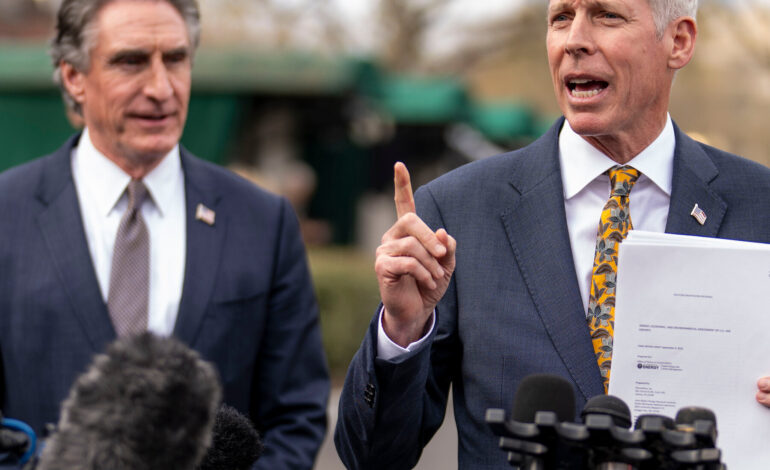U.S. Officials Urge Europe to Reassess Climate Policies for Prosperity

U.S. officials are pushing for a reconsideration of climate policies in Europe, arguing that current environmental regulations could hinder economic prosperity. During a recent visit to Europe, Chris Wright, the U.S. Secretary of Energy, emphasized the need for European nations to adopt more flexible environmental standards and to increase their imports of natural gas. This initiative aims to strengthen energy security amid ongoing geopolitical challenges.
In a parallel statement, Doug Burgum, the U.S. Secretary of the Interior, linked the production and use of fossil fuels to the broader context of competition in the field of artificial intelligence. He suggested that reliance on these energy sources is crucial for the United States to maintain its technological edge over other nations. Burgum’s comments reflect a growing sentiment among U.S. officials that energy independence is vital for national security and economic growth.
Calls for Increased Natural Gas Imports
Wright’s remarks highlight a significant shift in U.S. energy diplomacy, advocating for European countries to loosen their restrictions on fossil fuel consumption. He pointed out that increased imports of liquefied natural gas (LNG) from the U.S. could be an effective way to mitigate reliance on Russian energy supplies, particularly in light of the ongoing conflict in Ukraine.
As European leaders face rising energy costs and supply chain disruptions, Wright’s recommendations could have a profound impact on future energy policies. “Energy security is paramount,” he stated, urging European nations to take decisive action to secure stable energy sources.
The U.S. has ramped up its efforts to export natural gas to Europe, with shipments increasing significantly over the past year. According to industry reports, U.S. LNG exports to Europe reached approximately $15 billion in 2022, underscoring the growing importance of this trade relationship.
Fossil Fuels and Technological Competition
Burgum’s comments regarding fossil fuels also reflect a strategic approach to energy policy. In his view, the availability of reliable energy sources is essential for fostering innovation and maintaining competitiveness in emerging technologies, especially in AI development. He argued that a strong energy sector would provide the necessary resources for technological advancements that could drive economic growth.
“Access to affordable energy is critical for the future of our economy and our ability to compete globally,” Burgum remarked during his address. He noted that investments in fossil fuels are not just about energy production but are also linked to broader economic strategies that can enhance national competitiveness.
The dialogue between U.S. officials and European leaders comes at a pivotal moment. As discussions about climate change intensify, balancing environmental concerns with economic realities poses a significant challenge. Both Wright and Burgum are advocating for a pragmatic approach that recognizes the role of fossil fuels in energy transitions while addressing climate goals.
The outcome of these discussions may influence not only energy policies in Europe but also the broader dynamics of international energy markets. As nations reassess their energy strategies, the implications for global economic stability and climate initiatives will become increasingly evident.
In this context, the U.S. administration’s push for a shift towards more flexible energy policies in Europe may redefine the relationship between energy security and climate action in the coming years.






